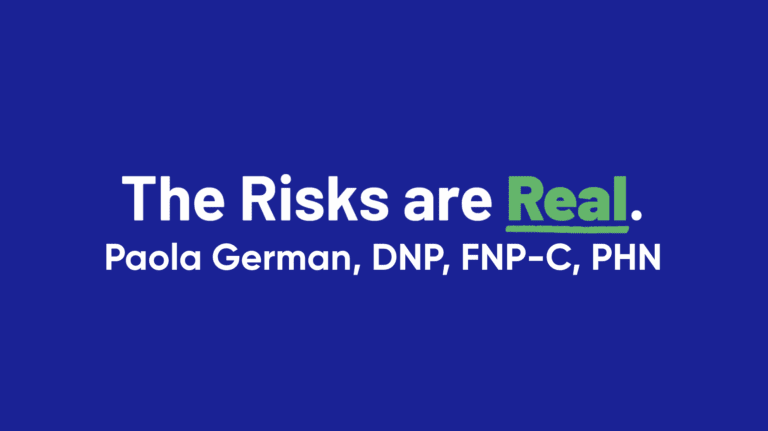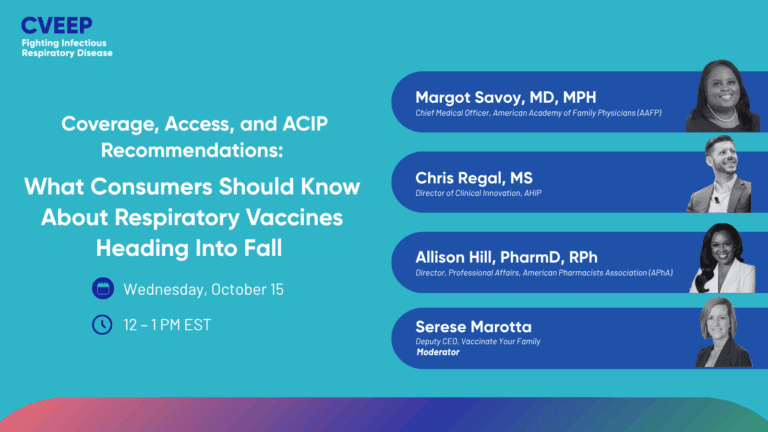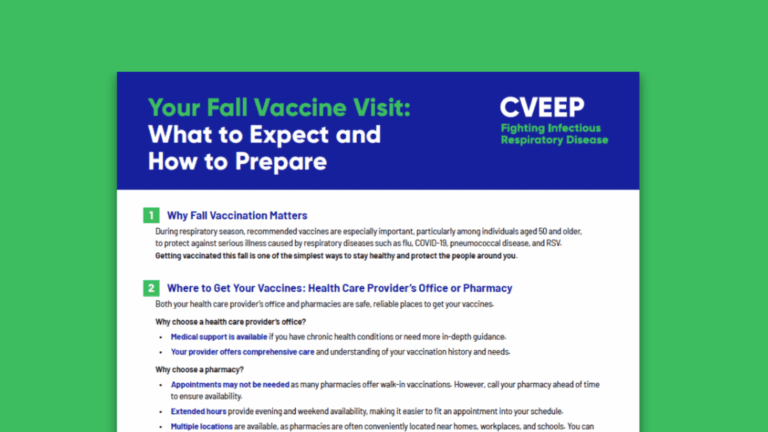Pneumococcal Disease
Need vaccine information?
Check out the resources below.
Pneumococcal disease is caused by a bacteria called Streptococcus pneumoniae and can result in many different types of infections, including pneumonia (lung infection).
In the U.S., pneumococcal pneumonia causes over 150,000 hospitalizations and 5,000 deaths annually.
Who needs to be protected?
The best way to help prevent pneumococcal disease is to get vaccinated. The Centers for Disease Control and Prevention (CDC) recommends the following groups stay up to date with their pneumococcal disease vaccines:
- Children younger than 5 years
- Children 2 through 18 years with certain risk conditions including chronic heart, liver, kidney, and lung disease (including some cases of asthma), cochlear implants, and others
- Adults 19-49 years old with certain risk conditions, including chronic heart, liver, and lung disease, diabetes, cigarette smoking, and others
- Adults 50 years or older
What vaccine options are available?
CDC recommends two types of pneumococcal vaccines, pneumococcal conjugate vaccines (PCVs) and pneumococcal polysaccharide vaccines (PPSVs), based on age, risk conditions, and past pneumococcal vaccination history. Talk to a healthcare provider to determine whether you should get a pneumococcal vaccine and which vaccine is right for you.
I’m feeling lousy. How do I figure out what I have?
Visit CDC’s website to learn more about symptoms for COVID-19, influenza (flu), whooping cough, pneumococcal disease, and respiratory syncytial virus (RSV).
While pneumococcal disease can result in many types of infections, symptoms may include:
- Cough
- Rapid breathing or difficulty breathing
- Chest pain
- Sore throat
- Ear pain
- Headache
- Stiff neck
- Fever* or chills
- Confusion
- Sensitivity to lights
*There is some research that indicates that fever in older adults may be lower than the typical 101.4 F.
Early diagnosis is very important for serious pneumococcal disease. Reach out to a healthcare provider for a diagnosis, which may require lab testing.
What should I do if I or a loved one has pneumococcal disease?
Early treatment is very important, so consult with a healthcare provider on the best treatment plan. Providers typically use antibiotics to treat pneumococcal disease.
Latest Resources

Vaccines | COVID-19 | Flu | Pertussis (Whooping Cough) | Pneumococcal Disease | RSV

